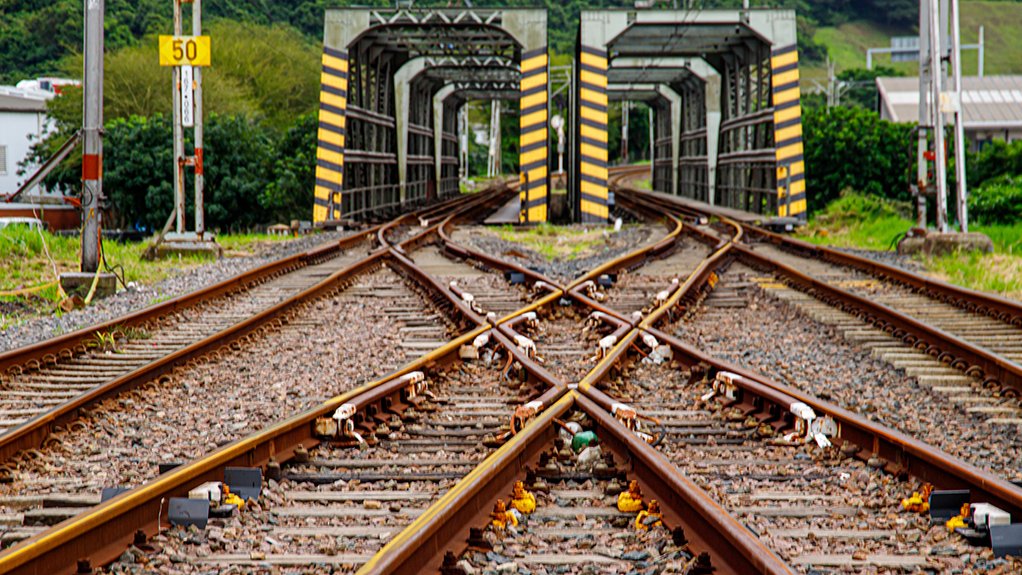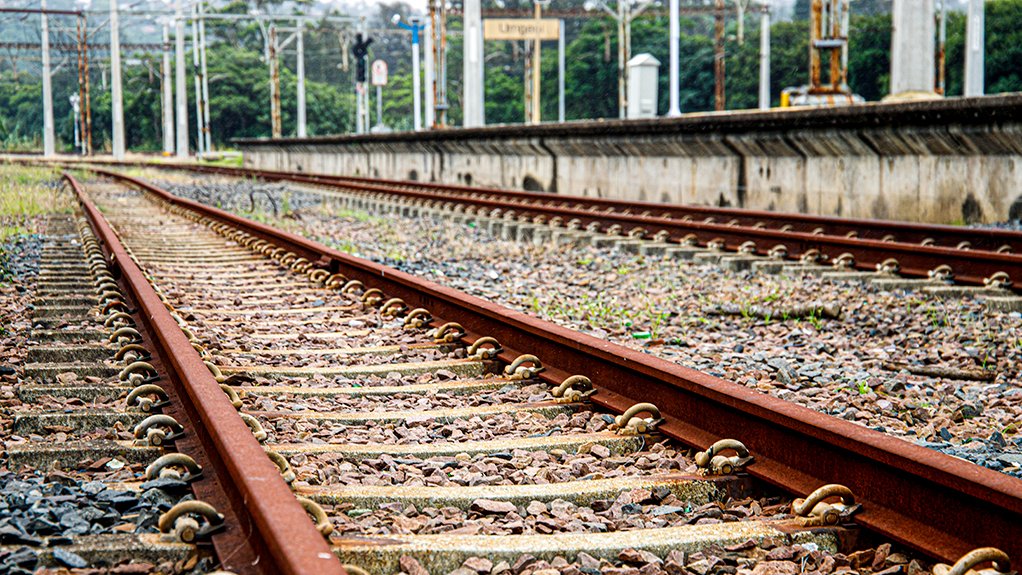Rail infrastructure challenges abound




TSHEPO KGARE The RSR aims to develop a modern, flexible and efficient regulatory regime that ensures the continuing enhancement of safe railway operations
ON THE RIGHT TRACK The safety risk model will provide an overall framework of safety risk against which opportunities for safety improvement can be evaluated
TRAINING REQUIRED The local rail industry is facing a shortage of core skills, and railway operators and institutions will need a focussed approach to skills development
Train operators are working to restore the condition of South Africa’s rail network, including trains and stations, which is in “dire straits”, says Railway Safety Regulator (RSR) CEO Tshepo Kgare.
“The ageing infrastructure and limited capacity to move more goods and passengers is a challenge. Rehabilitation, maintenance and upgrades of the infrastructure is imperative.”
Criminality, such as theft and vandalism, is the biggest challenge and safety threat to rail infrastructure, owing to cables and other necessary components being stolen, with poor spatial planning and informal settlements encroaching on rail reserves contributing further to the deterioration of the rail infrastructure.
Meanwhile, South Africa’s rail industry is facing a shortage of core skills, owing to the industry being tasked to meet the expanded mandate of supporting government’s socioeconomic and transport objectives in the country’s rural and urban landscapes.
Kgare adds that operators and institutions will need a focussed approach to skills development, based on the advancement of training, as a strong base for these critical skills, to sustain freight and rail passenger demands.
To address the skills demand, the safety management system (SMS), established through requirements set out in the National Railway Safety Regulator Act (2002) requires train operators to ensure that employees conducting critical safety work are adequately trained.
“Through the SMS’s regulatory regime, the RSR has been successful in ensuring that operators warrant that their employees, who are performing safety critical work, are adequately trained as required by the SMS and applicable standards,” expresses Kgare.
Further, the RSR is facilitating the development of the safety risk model in the local rail industry, which will provide an overall framework of safety risk against which opportunities for safety improvement can be evaluated.
“The model consists of a series of fault and event trees representing a set number of hazardous events, which may collectively define the overall level of risk on the railway. It provides a structured representation of the causes and consequences of potential occurrences arising from railway operations and maintenance, which will help to mitigate rail safety issues,” she adds.
The RSR was established in terms of the National Railway Safety Regulator Act, as amended, to establish a national regulatory framework for South Africa, and monitor and enforce compliance in the rail sector.
The primary legislative mandate of the RSR is to oversee and enforce safety performance by all railway operators, including those of neighbouring States whose rail operations enter South Africa.
In terms of the Act, all operators are primarily responsible and accountable for ensuring the safety of their railway operations.
Hence, Kgare says the RSR aims to develop a modern, flexible and efficient regulatory regime that ensures the continuing enhancement of safe railway operations.
It also aims to promote the harmonisation of South Africa’s railway safety regime with the objectives and requirements of the Southern African Development Community for the operation of railways.
“In the long term, the RSR aims to contribute to the reduction of high-impact railway occurrences. In the medium term, it will continue to collaborate with security organs of State to deal with theft and vandalism of the rail infrastructure,” she concludes.
Comments
Press Office
Announcements
What's On
Subscribe to improve your user experience...
Option 1 (equivalent of R125 a month):
Receive a weekly copy of Creamer Media's Engineering News & Mining Weekly magazine
(print copy for those in South Africa and e-magazine for those outside of South Africa)
Receive daily email newsletters
Access to full search results
Access archive of magazine back copies
Access to Projects in Progress
Access to ONE Research Report of your choice in PDF format
Option 2 (equivalent of R375 a month):
All benefits from Option 1
PLUS
Access to Creamer Media's Research Channel Africa for ALL Research Reports, in PDF format, on various industrial and mining sectors
including Electricity; Water; Energy Transition; Hydrogen; Roads, Rail and Ports; Coal; Gold; Platinum; Battery Metals; etc.
Already a subscriber?
Forgotten your password?
Receive weekly copy of Creamer Media's Engineering News & Mining Weekly magazine (print copy for those in South Africa and e-magazine for those outside of South Africa)
➕
Recieve daily email newsletters
➕
Access to full search results
➕
Access archive of magazine back copies
➕
Access to Projects in Progress
➕
Access to ONE Research Report of your choice in PDF format
RESEARCH CHANNEL AFRICA
R4500 (equivalent of R375 a month)
SUBSCRIBEAll benefits from Option 1
➕
Access to Creamer Media's Research Channel Africa for ALL Research Reports on various industrial and mining sectors, in PDF format, including on:
Electricity
➕
Water
➕
Energy Transition
➕
Hydrogen
➕
Roads, Rail and Ports
➕
Coal
➕
Gold
➕
Platinum
➕
Battery Metals
➕
etc.
Receive all benefits from Option 1 or Option 2 delivered to numerous people at your company
➕
Multiple User names and Passwords for simultaneous log-ins
➕
Intranet integration access to all in your organisation




















